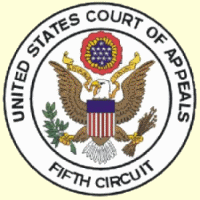The U.S. Court of Appeals for the Sixth Circuit recently upheld the dismissal of a financial institution's putative class action lawsuit against a cellular service provider arising from a "SIM swap" scam, holding that the financial institution had no claim for indemnification or contribution under the EFTA or state law.
Posts published in “EFTA”
The U.S. Court of Appeals for the District of Columbia Circuit recently reversed the ruling of a trial court and concluded that the Consumer Financial Protection Bureau’s Prepaid Rule, which regulates digital wallets and other prepaid accounts, does not mandate a “model clause” in violation of the Electronic Fund Transfer Act.
The U.S. Court of Appeals for the Seventh Circuit recently affirmed a trial court's ruling that a credit union’s fee practices did not breach its contract with a customer. In so ruling, the Seventh Circuit held that the credit union did not make any promises not to use the "available balance" method to assess nonsufficient fund (NSF) fees or not to charge multiple fees when a transaction is presented to it multiple times.
The U.S. Court of Appeals for the Ninth Circuit recently reversed the dismissal of a consumer’s claims that a bank violated the federal Electronic Fund Transfer Act by failing to fully reimburse her for losses suffered as result of fraudulent transfers from her account.
The U.S. Court of Appeals for the Fourth Circuit held that a tax payment agreement entered into pursuant to Virginia Code section 58.1-3018 was a consumer credit transaction subject to the federal Truth in Lending Act and Electronic Funds Transfer Act. The Court further ruled that the plaintiff had standing to assert his EFTA claim, because the claim was not merely for “a bare procedural violation,” but instead alleged “a substantive violation of the rights conferred by EFTA.” Accordingly, the Fourth Circuit affirmed the trial court’s denial of the company’s motion to dismiss the TILA and EFTA claims. A copy…
The U.S. District Court for the Middle District of Tennessee recently held that a creditor complied with the federal Electronic Funds Transfer Act when it obtained verbal authorization to accept the consumer’s electronic fund transfer and request for enrollment into an autopay system. In so ruling, the Court held that the creditor was not required to send the consumer a copy of his electronic signature (the recording). Instead, the Court held, the written confirmation of enrollment need only include the material terms of the autopay system, and sending the confirmation of enrollment within two business days of the date of…
Yesterday’s decision from the U.S. Supreme Court in Spokeo v. Robins should bolster the defense of companies subject to several federal consumer protection statutes. The ruling addresses lawsuits that claim an injury created solely by the violation of a federal statute and require the plaintiff to demonstrate not only that the statute was violated, but that the plaintiff herself suffered harm. The opinion does not go as far as many in the consumer financial services industry would have liked (not all injuries must be “tangible”), but it does close the door on civil lawsuits many have faced. The opinion was…
The Consumer Financial Protection Bureau issued a bulletin on Nov. 23, 2015 “intended to remind entities of their obligations under the Electronic Fund Transfer Act (EFTA) and Regulation E.” A careful read is needed, as Bulletin 2015-06 can be easily misinterpreted. A copy is available at: Link to Bulletin 2015-06. Electronic transfers become subject to the EFTA and Regulation E when they are made from a consumer’s “account.” Credit cards will typically not cause a transfer from a consumer’s account, but debit cards would cause a transfer from a consumer’s account. Much of the bulletin’s focus is directed at the…
Yesterday’s oral argument before the U.S. Supreme Court in Spokeo v. Robins suggests a struggle to fashion an understanding of what can constitute an “injury in fact.” It pitted the issue of whether a plaintiff’s standing to sue requires a tangible, concrete injury (loss of money, a job or property right) against the concept that the law can identify a “harm” (in this case, inaccurate information in a credit report) which itself is a real injury. Finding the Injury Spokeo v. Robins concerns an alleged violation of the Fair Credit Reporting Act. Robins claimed Spokeo compiled a report about him that contained false information…
The U.S. Court of Appeals for the Fifth Circuit recently held that an unaccepted offer of judgment does not moot a lead plaintiff’s claim in a putative class action. In so ruling, the Fifth Circuit reversed the district court’s ruling that, because a motion for class certification was not filed before the offer, the putative class action was also mooted. A copy of the opinion is available at: Link to Opinion. The plaintiff withdrew money from his checking account at an automated teller machine (ATM) and subsequently sued the ATM owner, seeking statutory damages under the Electronic Funds Transfer Act…
Statutory damage claims, like those under the TCPA and the FCRA, will be scrutinized in the next session of the U.S. Supreme Court and its decisions could have broad implications for the financial services industry. Today we look at one of the cases the court will consider, Gomez v. Campbell-Ewald Co. The case considers whether an offer of complete relief to a litigant will extinguish both her individual claims and, prior to class certification, render her class claims moot. A decision will likely impact litigation under the FDCPA, TILA, EFTA and other federal laws, which can expose financial services companies to…
The Consumer Financial Protection Bureau’s May 22 Supervisory Highlights report offers a rare glimpse into the CFPB’s thoughts on its first two years of supervision of nonbank entities, particularly debt buyers and debt collectors. Although the report contains several of the bureau’s standard talking points (data integrity in debts sales, for example) it does reveal new issues that have drawn the regulator’s attention and new guidance on pre-existing areas of concern. Compliance Management Systems It’s hard to believe, but according to the bureau some credit reporting agencies had no compliance management systems in place. Where it found a CMS, there were several instances uncovered where neither…











